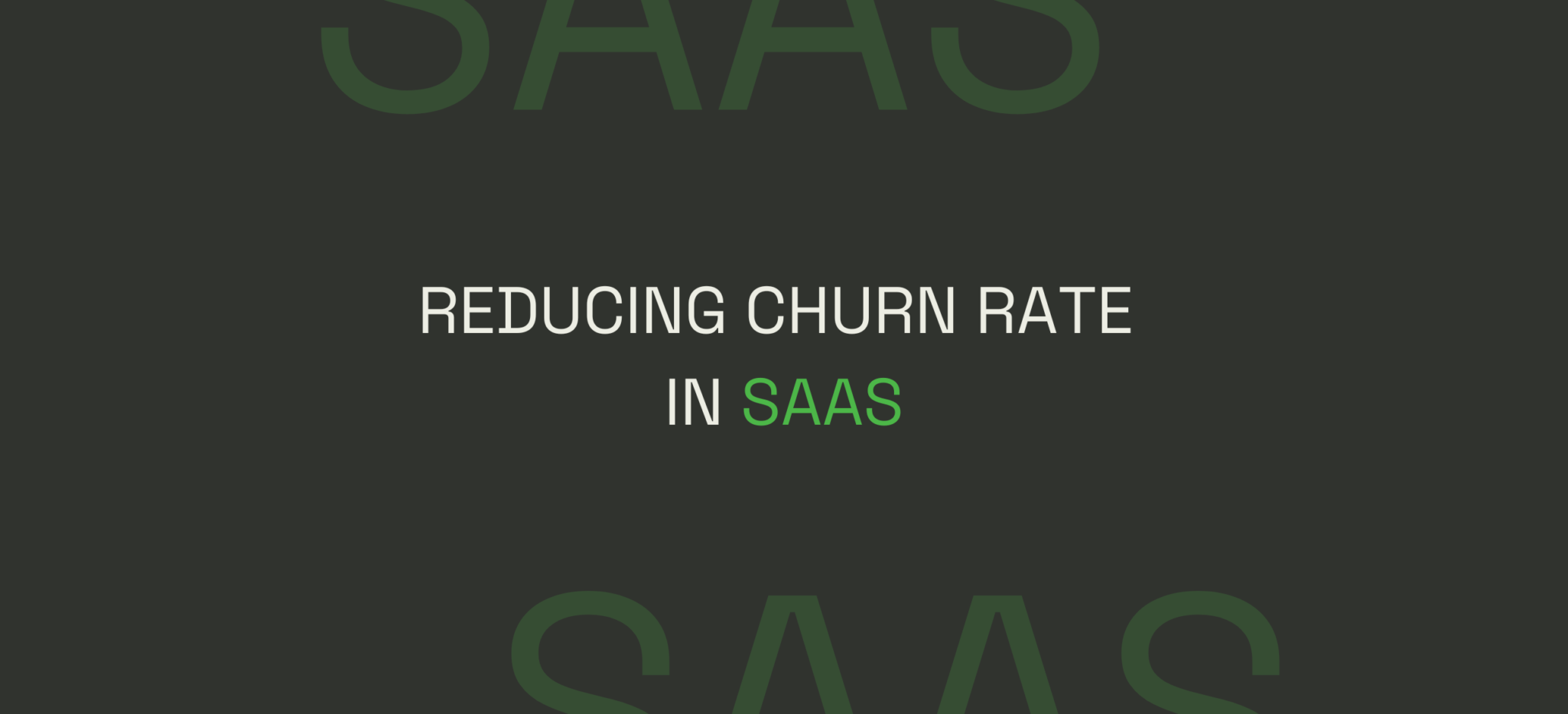
Reducing Your Churn Rate: A Practical Approach for SaaS
Keeping customers is essential for the long-term success of SaaS companies. In recurring revenue models, minimizing turnover has a direct effect on profitability and lays the groundwork for sustained success. How can you actively spot customers who may be at risk and implement effective strategies to keep them engaged? Explore HubSpot’s data dashboards and integrations—a transformative tool for contemporary SaaS companies.
The Significance of Minimising Churn
Churn refers to customers who decide to cancel or choose not to renew their subscriptions. High churn rates hinder growth and raise acquisition costs, as companies need to replace lost customers to sustain their revenue. Minimising churn is essential for SaaS companies for various reasons.
Maximising Customer Lifetime Value (CLV): Customers who stay with us are more inclined to buy upgrades or extra services.
Fostering Growth: Reducing churn leads to greater stability and more resources for expanding operations.
Creating Brand Loyalty: Keeping customers encourages advocacy and establishes lasting trust in the brand.
We are using HubSpot data dashboards to decrease churn.
HubSpot’s data dashboards offer real-time insights, enabling SaaS companies to visualize essential metrics and implement targeted actions to minimize churn. Here’s how these dashboards assist:
1. Keep an eye out for important customer metrics.
HubSpot dashboards provide a detailed look at how customers behave, including:
Monitor how customers engage with your platform. Decreasing usage may suggest a lack of engagement.
Support Tickets: An increase in issues could indicate unhappiness.
Subscription Health: Quickly spot upcoming renewal dates and any billing concerns.
By monitoring these metrics, you can address issues directly before they lead to employee turnover.
2. Divide your customer base into segments.
Churn risks vary significantly. HubSpot enables you to categorize customers according to their behaviors, demographics, or subscription levels. This segmentation allows you to customize retention strategies, like offering extra support to valuable customers or creating personalized renewal offers for those who are at risk.
3. Streamline Customer Engagement
Hubspot connects seamlessly with email marketing and CRM tools to guarantee timely, personalized communication. For instance:
Renewal Reminders: Set up helpful reminders in advance of subscription expirations.
Engagement Campaigns: Reach out with focused campaigns to reconnect with inactive users.
Request Feedback: Actively reach out to users who may be feeling unhappy.
Every customer receives consideration thanks to automated outreach.
4. Review the feedback and complete the process.
Using tools such as the HubSpot Service Hub allows you to gather and assess customer feedback efficiently. Surveys after cancellations, NPS results, and support tickets offer valuable insights to improve your services. By integrating this data into your dashboards, you can assess the effects of changes and enhance your processes over time.
Integrations That Enhance Retention Strategies
HubSpot’s extensive range of integrations enhances its effectiveness in managing churn. Here are a few important integrations:
Customer Success Platforms (like Gainsight): Integrate customer health scores and engagement data for a comprehensive overview.
Analytics Tools (e.g., Google Analytics): Assess how well churn prevention campaigns are performing.
Support Platforms (e.g., Zendesk): Bring together support interactions to spot trends in dissatisfaction.
Payment processors such as Stripe ought to monitor unsuccessful payments and establish automated recovery procedures.
These integrations bring together customer data, allowing for smooth workflows and better decision-making.
Strategies Driven by Data Through HubSpot
Here are some practical strategies that SaaS companies can adopt with HubSpot dashboards and integrations:
Predictive Retention Models: Leverage past data to spot trends and foresee churn risks, enabling timely interventions.
Discover opportunities for upselling and cross-selling by pinpointing customers who could gain from upgraded plans or additional services, informed by their actions.
Instant Notifications: Create notifications for risky actions, like subscription downgrades or repeated login failures, encouraging prompt responses.
Customer Health Scorecards: Develop visual scorecards to track customer engagement and satisfaction, focusing on those that require attention.
The Conclusion
HubSpot’s data dashboards and integrations enable SaaS companies to adopt a proactive, data-driven strategy for reducing churn. HubSpot enhances customer retention by providing valuable insights into customer behavior, automating personalized outreach, and seamlessly integrating it with other tools to make the process more efficient and manageable.
Minimising churn goes beyond merely solving issues; it involves fostering deeper connections and delivering value at each interaction. SaaS companies focused on sustainable growth will find that using HubSpot’s features is a wise choice for achieving lasting success.
Get in touch with our HubSpot Specialist for a demo so you can understand how this can help your software company. Booking link
Similar articles you might be interested in

Simplifying ARR Calculation: A Guide for SaaS Entrepreneurs
As a SaaS business owner, you know how hard it is to grow in a market that is already very crowded and competitive. But did you know that 70% of SaaS companies fail in the first 20 months after getting...

Rebranding Your SaaS: When, Why, and How to Make the Shift
It’s not easy to stay relevant and resonant in the world of SaaS (Software as a Service). What worked when you first started your business might not work anymore or with where you want to go. This is where rebranding...

Maximizing Customer Lifetime Value: A Guide for SaaS Businesses
Getting new customers is only one part of the Software-as-a-Service (SaaS) market, which is very competitive. Growing and adding users is important, but keeping them and maximizing their lifetime value (CLV) will make you successful. Customer Lifetime Value shows how...
